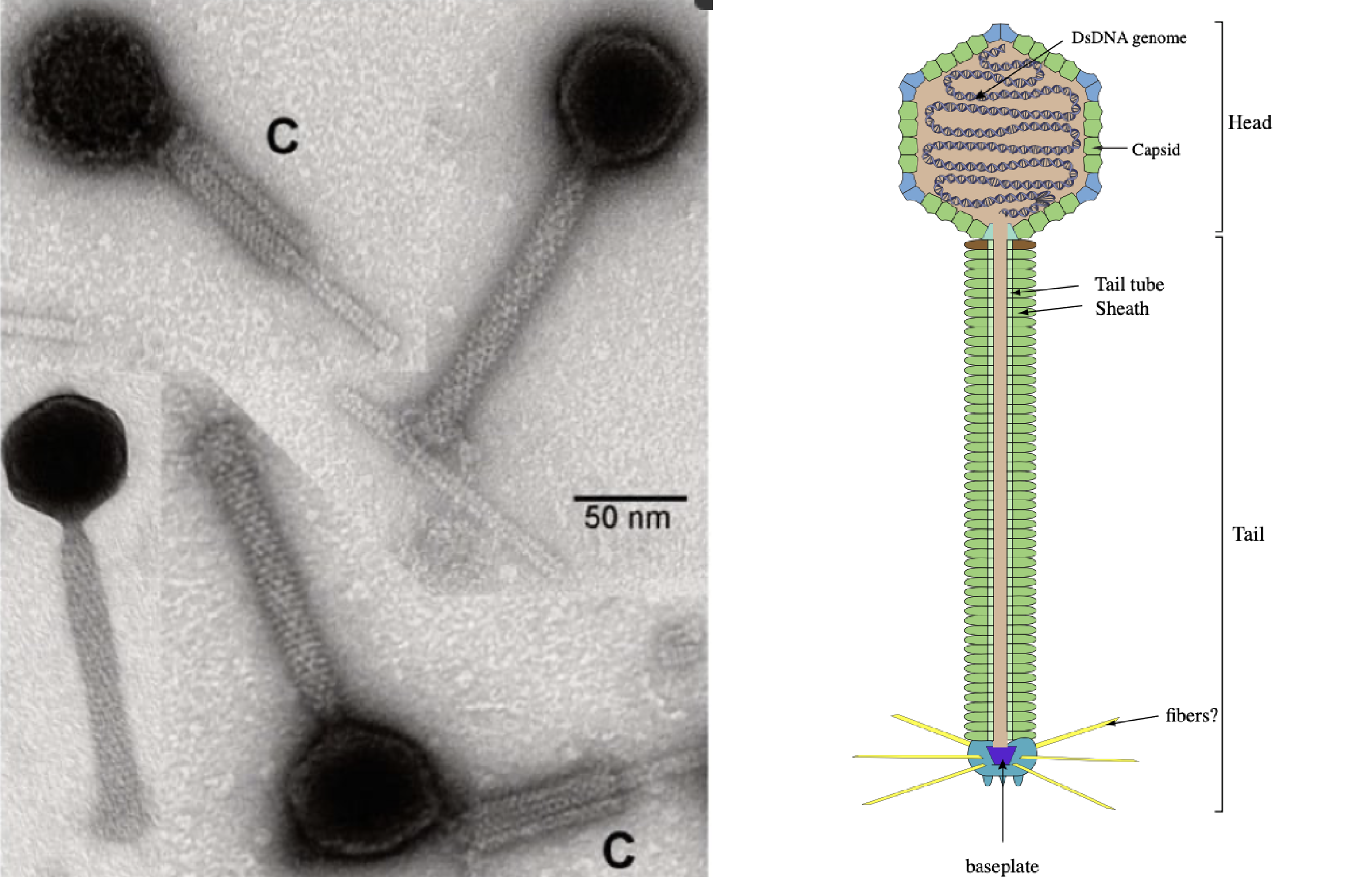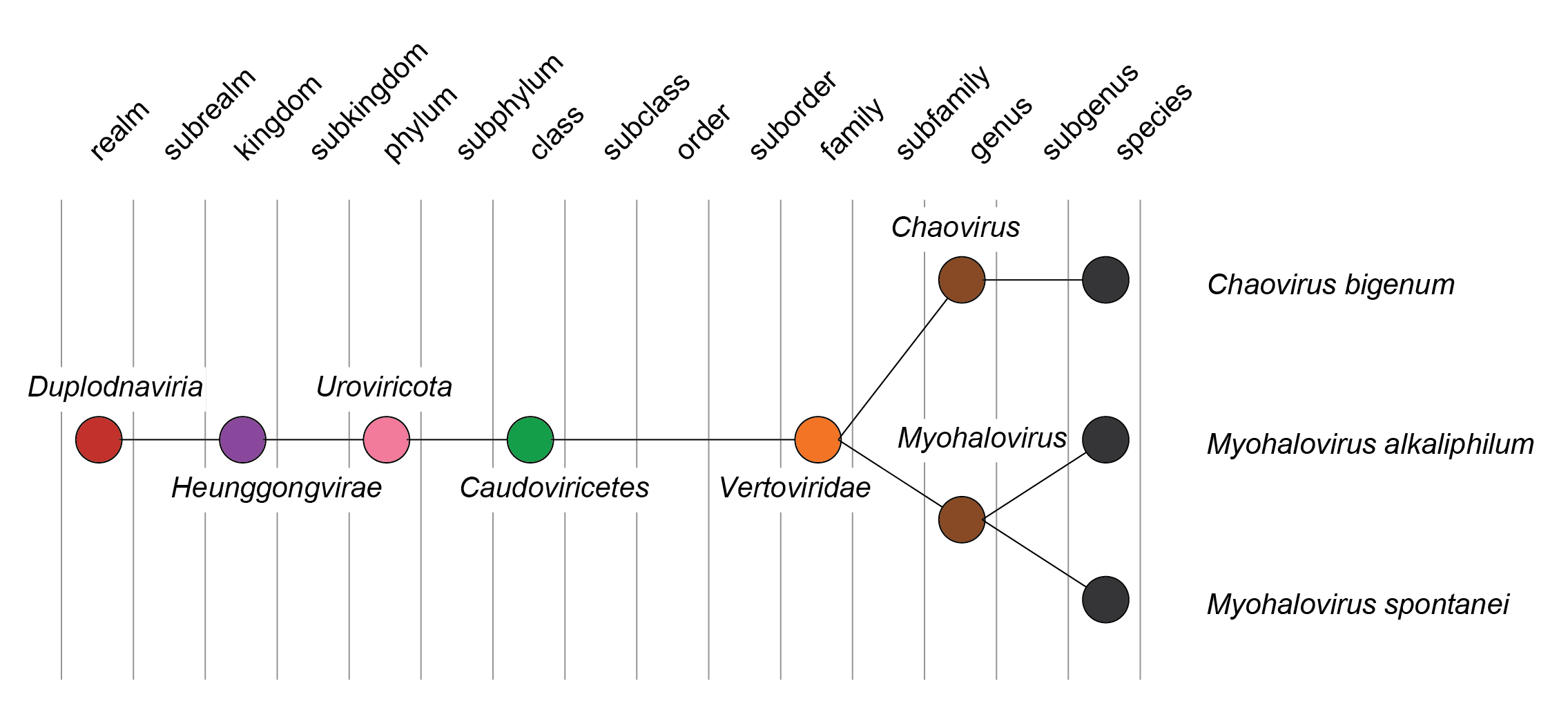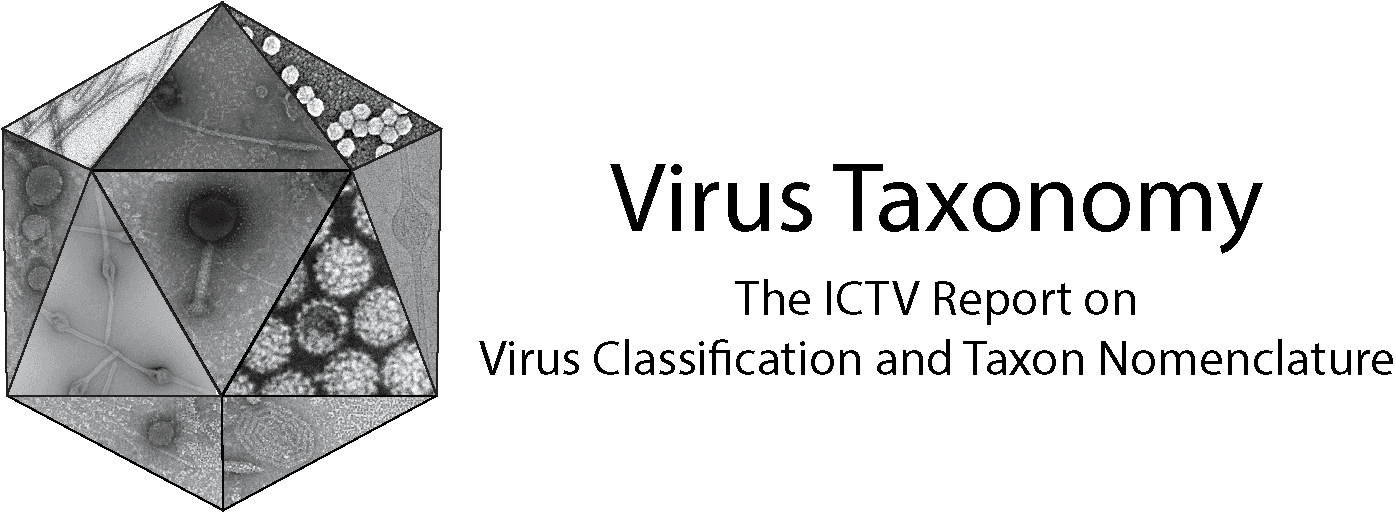Family: Vertoviridae (Interim Report)
This is a summary page created by the ICTV Report Editors using information from associated Taxonomic Proposals and the Master Species List.
Edited by: Mart Krupovic
Posted: June 2023, updated December 2024
Summary
The family Vertoviridae includes dsDNA viruses with icosahedral capsids and contractile tails. Vertoviruses infect hyperhalophilic archaea, such as Natrialba magadii and Halobacterium salinarum (Table 1 Vertoviridae). The family was established in 2022 (Master Species List #37).
Table 1 Vertoviridae. Characteristics of members of the family Vertoviridae.
| Characteristic | Description |
| Example | Natrialba virus PhiCh1 (MK450543), species Myohalovirus alkaliphilum, genus Myohalovirus |
| Virion | Icosahedral capsid and contractile tail with short terminal fibres (myovirus morphology) (Figure 1 Vertoviridae) |
| Genome | DNA genome of 55–58 kbp, circularly permuted (Figure 2 Vertoviridae) |
| Host range | Hyperhalophilic archaea, such as Natrialba magadii (halophlic/alkaliphilic) and Halobacterium salinarum (hyperhalophilic) |
| Taxonomy | Realm Duplodnaviria, kingdom Heunggongvirae, phylum Uroviricota, class Caudoviricetes: 2 genera and 3 species (Figure 3 Vertoviridae) |
 |
| Figure 1 Vertoviridae. (Left) Electron micrograph of negatively-stained ChaoS9 particles. Scale bar represents 50 nm. C - examples of contracted tails. Image from Dyall-Smith et al. (2019) "Halobacterium salinarum virus ChaoS9, a novel halovirus related to PhiH1 and PhiCh1." Genes (Basel) 10:194. under a Creative Commons Attribution 4.0 International License. (Right) Schematic of virions. Image from ViralZone under a Creative Commons Attribution 4.0 International License, credit: SwissBioPics. |
 |
| Figure 2 Vertoviridae. Genome organisation of Natrialba virus PhiCh1, a member of the family Vertoviridae. Boxes indicate open reading frames as annotated on GenBank accession MK450543. |
 |
| Figure 3 Vertoviridae. Taxonomy of the family Vertoviridae. |
Derivation of name
Vertoviridae: From Latin verto, meaning invert (referring to the invertible tail fiber locus)

